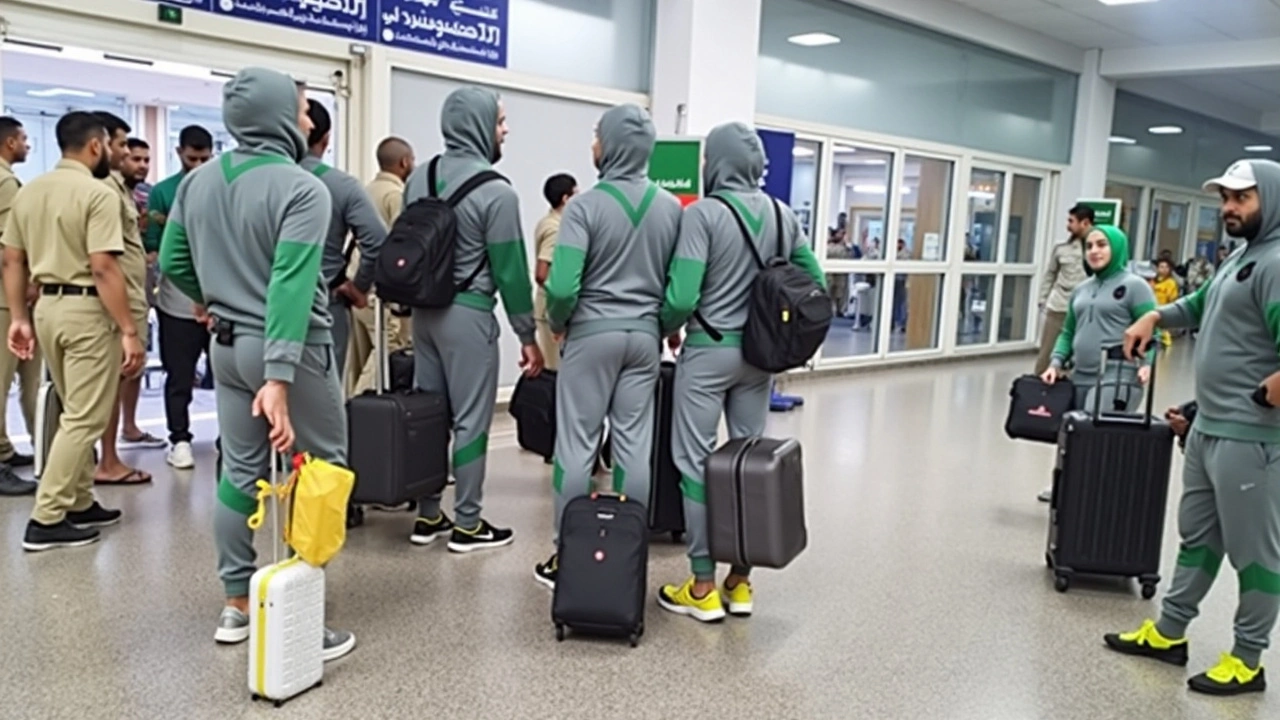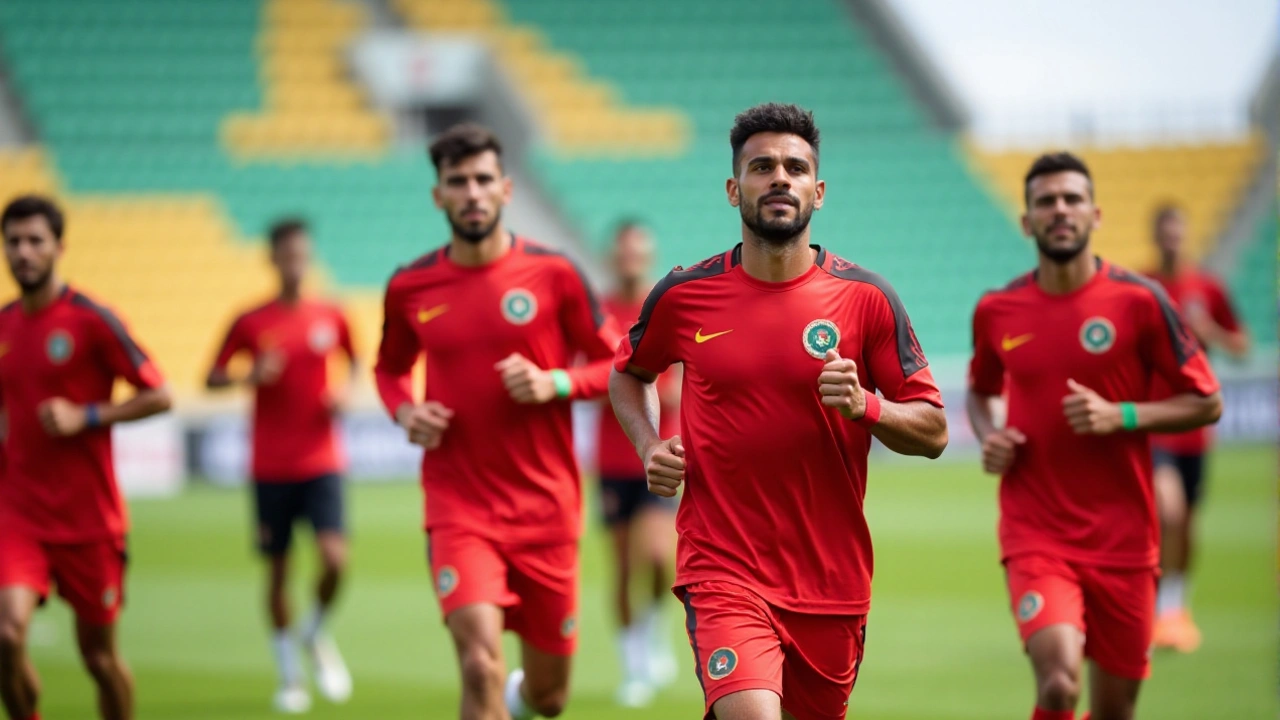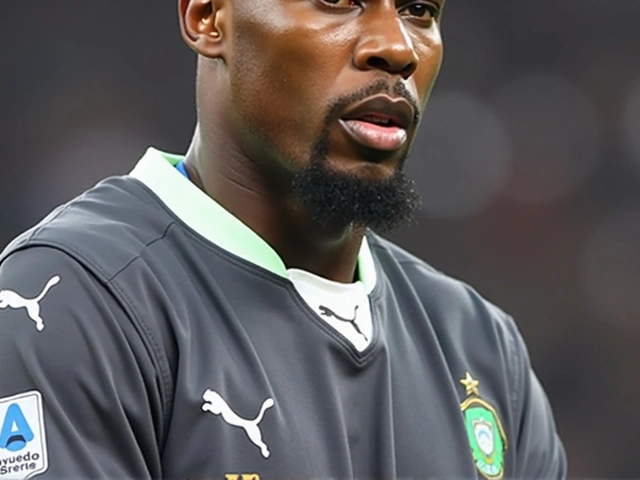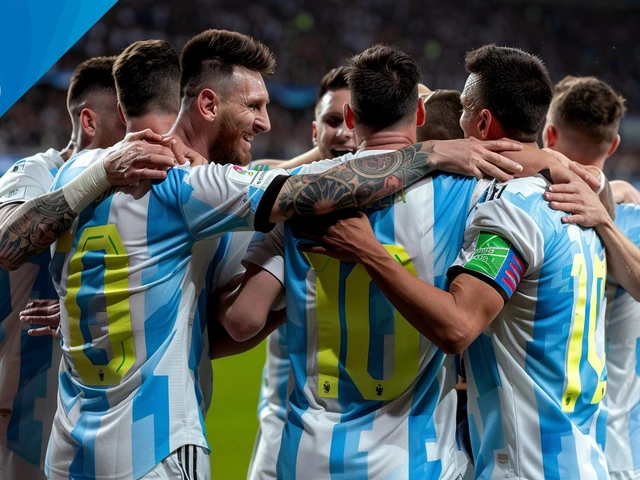- Home
- Hostage Thrillers: How Political Tensions Transformed a Soccer Match Between Libya and Nigeria into a Crisis
Hostage Thrillers: How Political Tensions Transformed a Soccer Match Between Libya and Nigeria into a Crisis

Tense Prelude to AFCON: Nigeria's Unexpected Airport Ordeal
As the Super Eagles soared through the skies, brimming with excitement and expectations for their crucial African Cup of Nations (AFCON) qualifier against Libya, little did they know that an unexpected twist was about to unfold—a change in their destiny that would echo beyond the green football fields. Led by hopes of showcasing their prowess and furthering their ambition on the international stage, the team expected nothing but a seamless journey. However, as they neared their supposed destination, Benghazi, their adversities took form not on the pitch but in the skies above Libya. The sudden diversion of their ValueJet aircraft, without prior notification, was more than a mere detour—it was a prelude to a twelve-hour saga that challenged the very essence of sportsmanship.
The disillusionment began as their aircraft was redirected to the lesser-known Al Abraq International Airport, which typically caters to hajj pilgrims rather than sports delegations. Here commenced a waiting game; an ordeal compounded by the absence of a welcoming committee or basic hospitality, where time stretched endlessly and shoulders bore the weight of mounting uncertainty. The expected drive to Benghazi, barely a three-hour journey, became unattainable as efforts to arrange alternative transport faltered at every turn. It wasn't just a logistical challenge but a melancholy reminder of sporting and political tensions simmering between the two nations.
Behind the Scenes: A Tapestry of Miscommunications
To unravel the tangled web of this twelve-hour episode, one must explore the currents of tension previously rippling through the football relations of Nigeria and Libya. Accusations of mistreatment and lack of courtesy elsewhere—claims Libyan media lobbed towards Nigeria during the previous leg of the qualifiers—potentially lay bare as the roots of this complex problem. According to these reports, the Libyan football delegation faced hostility upon their arrival in Uyo, Nigeria, a supposed retaliation shunned and deemed baseless by the Nigeria Football Federation (NFF). Behind closed doors, both federations would argue that a lapse in communication and fragmented coordination sowed the seeds of discord rather than any deliberate malice or foul play.
Yet, amidst these assertions and refutations lies the reality of a twelve-hour wait at a remote airport—a space turned into a crucible of rising tension, tired limbs, and anxious minds. With the Super Eagles held at arm's length by uncertain forces, the situation resembled less a sporting stopover and more a strategic standoff. Harrowing hours spent without formal contact or reassurance compounded the players' physical and mental strain, raising pressing concerns about health risks and player welfare.

The Match Amidst Mayhem: Nigeria's Unwavering Resolve
As darkness loomed and the stagnant hours chipped away at their vigor, the determination among the Nigerian players wavered, compelling them to weigh their options. Consulting their dedicated team of medical professionals, a consensus emerged fueled by strategic caution—the risks posed by such extended duress outweighed ambitions of triumph. This consensus led to a difficult yet firm resolution: to withhold their participation from a mental and physically taxing match was pivotal, unless circumstances improved drastically enough to warrant reevaluating.
Despite the turbulence leading up to the game, fate possessed different plans. Determination overshadowed discontent. With cooperation reluctantly attained at a late hour, the match unfolded as a testament to Nigeria's resilience—a victory carved out of dull adversity, with a defining 1-0 win that extended beyond the confines of the competitive field.
A Call for Action: CAF's Role in Preserving Football's Integrity
The episode now labeled as hostage-taking rather than simply a bump in the journey, warrants deeper investigation by the Confederation of African Football (CAF) to protect the sanctity of not just this match but the broader spirit of African soccer. This Libyan exhibition of unexpected adversity demands introspection, regulations, and structures reinforcing fair play and hospitable conduct—an adherence to the principle that football transcends borders, politics, and personal disputes, championing unity and globally cherished sport.
As the dust settles on what was fundamentally an attempt at undermining peace on the field, the message remains clear: sportsmanship has no room for personal vendettas or deliberate gamesmanship, and hence, robust intervention is necessary. Such actions celebrate not just victors or various scorelines but the very essence of every competition worldwide—passion, hope, and unyielding resolve in the face of unforeseen adversities.


Write a comment